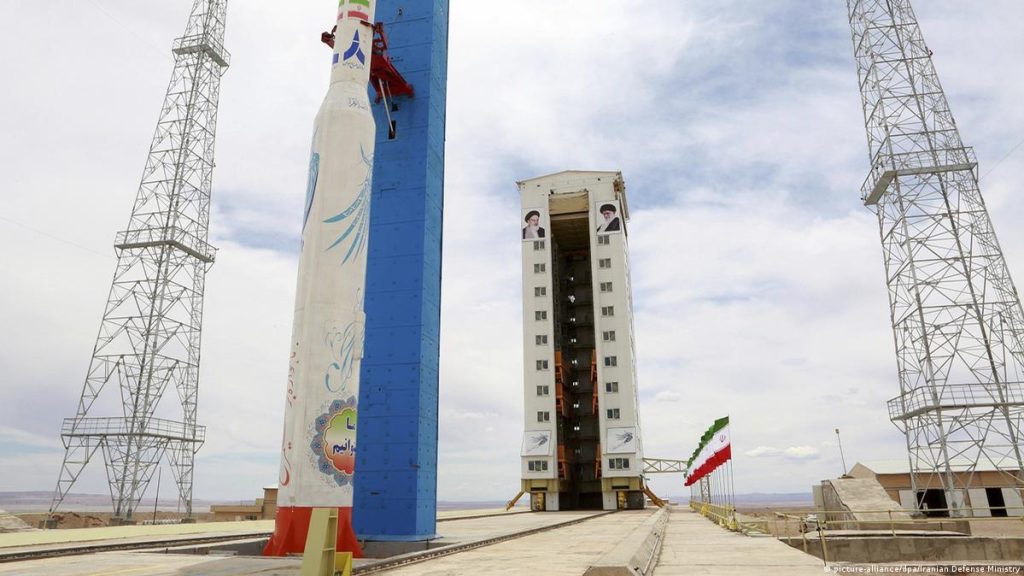Telecommunications Minister Issa Zarepour said on Sunday that the Islamic Republic of Iran is all set to launch at least two satellites into space by late March, this announcement was followed by the successful test launch last month.
The United States has repeatedly shown concerns about the launch, that it is linked with the Russian-Ukrain war, and that Iran will somehow use this to aid Russian operations in Ukraine. The US government says that this launch could boost Iran’s ballistic missile technology, extending to the potential delivery of nuclear warheads. Contrarily, Iran says that it is not seeking nuclear weapons and that its satellite and rocket launches are only for civil or defense purposes.
“Nahid 1 and Nahid 2 satellites are being prepared, we will have launches by year’s end” Minister Zarepour was quoted as saying by the official news agency IRNA. Nahid is the name given to a series of telecommunications satellites developed by the Iranian Space Research Center.
In early November, Iranian state television announced the “successful suborbital launch of the satellite launcher named Ghaem-100”.
The Ghaem-100 rocket was manufactured by the aerospace organization of the Islamic Revolutionary Guard Corps and it is the country’s first three-stage solid-fuel satellite launcher, the channel added. Iran successfully put its first military satellite into orbit in April 2020, drawing a sharp rebuke from Washington.
In August this year, another Iranian satellite, named Khayyam, was launched by Russia on a Soyuz-2.1b rocket from Baikonur Cosmodrome in Kazakhstan.
Iran’s space agency said Russia constructed the device under Iran’s supervision.
The US alleged at the time that the Khayyam would enable “significant spying capabilities” and that a deepening Russia-Iran alliance amounted to a “profound threat” to the world.
Iran’s space agency rejected those allegations, countering that the purpose of Khayyam was to “monitor the country’s borders”, and help manage natural resources and agriculture.
The Ghaem-100 rocket was manufactured by the aerospace organization of the Islamic Revolutionary Guard Corps and it is the country´s first three-stage solid-fuel satellite launcher, the channel added.
Iran successfully put its first military satellite into orbit in April 2020, drawing a sharp rebuke from Washington. In August this year, another Iranian satellite, named Khayyam, was launched by Russia on a Soyuz-2.1b rocket from Baikonur Cosmodrome in Kazakhstan.
Iran´s space agency said Russia constructed the device under Iran´s supervision. The US alleged at the time that the Khayyam would enable “significant spying capabilities” and that a deepening Russia-Iran alliance amounted to a “profound threat” to the world.
Iran´s space agency rejected those allegations, countering that the purpose of Khayyam was to “monitor the country´s borders”, and help with the management of natural resources and agriculture.
A month ago Iran announced the successful test of the satellite launcher named Ghaem-100.
“The flight test of this launcher using the Rafe solid-fuel vehicle has been successfully completed,”
Amir Ali Hajizadeh, head of the Revolutionary Guard’s aerospace division which developed the Ghaem 100, said the rocket would be used to launch Iran’s Nahid satellite for the telecommunications ministry, state media reported. The reports added that the operation tested the rocket’s first sub-orbital stage.
Ghaem-100 “is capable of placing satellites weighing 80 kilograms (176 pounds) in orbit 500 kilometers (just more than 300 miles) from the surface of the Earth,” it said. Iran successfully put its first military satellite into orbit in April 2020, drawing a sharp rebuke from Washington.
Read More:





 HEC Will Soon Launch An Affordable Edx/Coursera Competitor In Pakistan
HEC Will Soon Launch An Affordable Edx/Coursera Competitor In Pakistan